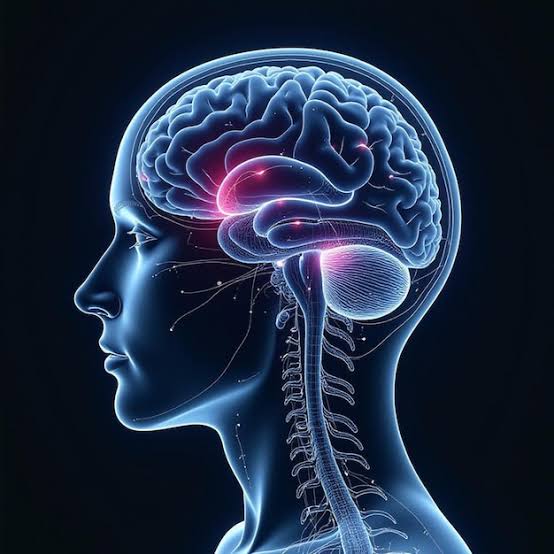Depression is often described as a storm that brews inside the mind, quietly eroding joy, motivation, and clarity of thought. It is not simply a fleeting sadness, but a persistent condition that can stretch across weeks, months, and even years, making it difficult for individuals to carry out daily activities. While many people associate depression with emotional symptoms—such as hopelessness, loss of interest, or low mood—its effects reach far deeper. Cognitive functions, the very tools we rely on for memory, focus, problem-solving, and decision-making, are also profoundly impacted.
Those struggling with depression often describe their thinking as slowed or foggy. Concentrating on tasks feels like pushing through mud, decisions seem overwhelming, and memory lapses become frustratingly common. Many also experience negative cognitive biases, where failures and losses weigh heavier than successes or joys. Planning and organization suffer, undermining work performance and personal responsibilities. Even when mood symptoms start to lift, these cognitive difficulties can linger, making recovery incomplete and daily life challenging.
Against this backdrop, researchers have been asking a critical question: is there a way to soften depression’s impact on the brain? Two new studies from China suggest that the answer may lie, at least in part, in lifestyle choices.
A Closer Look at the Studies
Conducted in the provinces of Hubei and Shanghai, these studies examined the intersection of depressive symptoms, lifestyle habits, and cognitive function among middle-aged and older adults. Together, they involved more than 12,500 participants—7,756 from Hubei and 4,751 from Shanghai.
The participants were evaluated for depression using the widely recognized Geriatric Depression Scale, while cognitive abilities were assessed through the Mini-Mental State Examination, a standard tool for measuring memory, attention, and thinking skills. In addition to these assessments, researchers gathered detailed information on demographics, health history, and lifestyle choices. This included data on smoking, alcohol use, physical activity, sleep duration, waist circumference, and medical conditions such as hypertension, diabetes, and cardiovascular disease.
The average age of participants was 68 in Hubei and 72 in Shanghai, with women making up just over half of the study populations. This age group was particularly significant, as both depression and cognitive decline become more common with aging.
What the Researchers Found
The findings painted a clear picture: individuals with more severe depressive symptoms scored lower on measures of cognitive functioning. They were also more likely to meet the criteria for mild cognitive impairment, a condition that often precedes dementia. In other words, the weight of depression seemed to drag down not only mood but also mental sharpness.
But the story did not end there. Among participants who maintained healthier lifestyles—particularly those who engaged in regular physical activity, slept for an optimal duration, and scored higher on an overall healthy lifestyle index—the link between depression and reduced cognitive performance was weaker. These individuals, even when experiencing depressive symptoms, demonstrated better cognitive outcomes compared to those with less healthy habits.
The authors summarized their conclusion succinctly: depressive symptoms are associated with impaired cognitive function, but this association can be attenuated by healthy lifestyles.
Why Lifestyle Matters
The results underscore something both intuitive and scientifically compelling: the body and mind are deeply interconnected. Physical activity, for example, is known to stimulate blood flow to the brain, promote the growth of new neurons, and enhance connections between brain cells. Sleep, meanwhile, plays a critical role in consolidating memory and clearing metabolic waste products that accumulate in the brain throughout the day. Together, these behaviors help preserve and even strengthen cognitive function, acting as a protective buffer against the harmful effects of depression.
A healthy lifestyle also reduces risk factors like high blood pressure, diabetes, and obesity—all of which are linked to cognitive decline. When combined, these factors may help explain why participants who adopted healthier habits fared better cognitively, even in the face of depressive symptoms.
The Limits and Possibilities
It is important to note, however, that the studies cannot prove cause and effect. The research was observational in design, meaning it identified associations rather than direct causal pathways. We cannot say for certain whether adopting a healthy lifestyle will always protect against depression-related cognitive decline, or whether people with better cognitive health are simply more likely to maintain healthy habits.
Still, the findings carry important implications. They highlight the potential of lifestyle as a practical, accessible tool in the broader fight against depression and cognitive decline. Medications and therapy remain critical for many individuals, but simple changes—moving more, sleeping well, and prioritizing overall health—may offer additional layers of resilience.
Depression, Cognition, and Hope
The story of depression is often told as one of loss—loss of joy, loss of motivation, loss of clarity. But these studies remind us that the narrative can also include hope. By taking steps to nurture our bodies, we may also protect our minds. Healthy habits will not erase depression, nor are they a cure-all for cognitive decline, but they can make the path less steep, the burden a little lighter.
As research continues, one message stands out clearly: the brain is not separate from the choices we make each day. Just as depression can dim the light of cognition, healthy living can spark it back to life. And in that balance, we find not only scientific truth but also a reminder of the resilience built into the human spirit.
The findings were published in the Journal of Affective Disorders.






